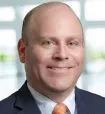The Beltway Buzz is a weekly update summarizing labor and employment news from inside the Beltway and clarifying how what's happening in Washington, D.C. could impact your business.
Where is Everybody? Perhaps due to the impeachment trial of President Donald Trump, it's been a relatively quiet week in the labor and employment arena in Washington, D.C. President Trump and U.S. Secretary of Labor Eugene Scalia (along with other high-profile U.S. officials) attended the World Economic Forum Annual Meeting in Davos, Switzerland. Additionally, Vice President Mike Pence and Speaker of the U.S. House of Representatives Nancy Pelosi (D-CA) traveled overseas to attend ceremonies commemorating 75 years since the liberation of Auschwitz. This left Senator Chuck Grassley (R-IA), president pro tempore of the U.S. Senate, to mind the store as next in line for the presidency. Hopefully he's been extra careful while mowing his lawn this week.
EEO-1 Arguments. On January 24, 2020, the U.S Court of Appeals for the District of Columbia Circuit heard oral argument in the appeal of a lower court decision that resuscitated the Equal Employment Opportunity Commission's (EEOC) 2016 EEO-1 Component 2 data grab. The ongoing legal battle—despite the fact that the Commission has already collected 2017 and 2018 wage and hours worked data from employers—is just one aspect of an ordeal that continues to create uncertainty for employers. What impact—if any—will this legal challenge have on future EEO-1 information collections and on the EEOC's use of the data that has already been collected? Will the EEOC receive Office of Management and Budget approval for a renewed EEO-1 form sans Component 2? If so, when? Finally, it is important to remember that the EEOC has indicated that later on this year it will consider "initiating a rulemaking . . . that may include a new reporting requirement by which employers would submit pay data or related information."
Civil Penalties Increase. Late last week, the U.S. Department of Labor (DOL) issued a final rule that made inflationary increases to various civil penalties that are assessed by the DOL. This includes penalties assessed under the Federal Mine Safety and Health Act of 1977, Employee Retirement Income Security Act, Occupational Safety and Health Act, Fair Labor Standards Act, Migrant and Seasonal Agricultural Worker Protection Act, and Immigration and Nationality Act among others. "[T]he increased penalty levels apply to any penalties assessed after January 15, 2020."
OSHA Enforcement Limitations. On January 21, 2020, the Occupational Safety and Health Administration (OSHA) released its list of industries that may be exempt from the agency's enforcement activities or where such enforcement may otherwise be limited. Funding limitations put in place by Congress prohibit OSHA from pursuing certain investigations or enforcement actions against two categories of employers: small farming operations and small employers (defined as those with 10 or fewer employees) in low-hazard industries. Check to see if you meet the criteria and are on the list by clicking here.
Chronicles of Riddick. The impeachment trial has shed light on some of the Senate's arcane rules and procedures. The Senate operates pursuant to not just the U.S. Constitution and its 44 Standing Rules, but mostly by informal precedents set over the last 230 years or so. This precedent has been gathered in a 1,600-page volume called Riddick's Senate Procedure (named after its compiler and former Senate parliamentarian, Dr. Floyd M. Riddick). So while sitting silently for hours in the Senate chamber this week, senators were prohibited by these obscure rules from consulting their phones or tablets and from consuming coffee or other caffeinated drinks. Strangely enough, however, the rules allow senators to drink milk on the Senate floor (see page 758), and some took advantage of this lacto-loophole. Why milk? Well, as they say, it does a (deliberative) body good.
The content of this article is intended to provide a general guide to the subject matter. Specialist advice should be sought about your specific circumstances.

